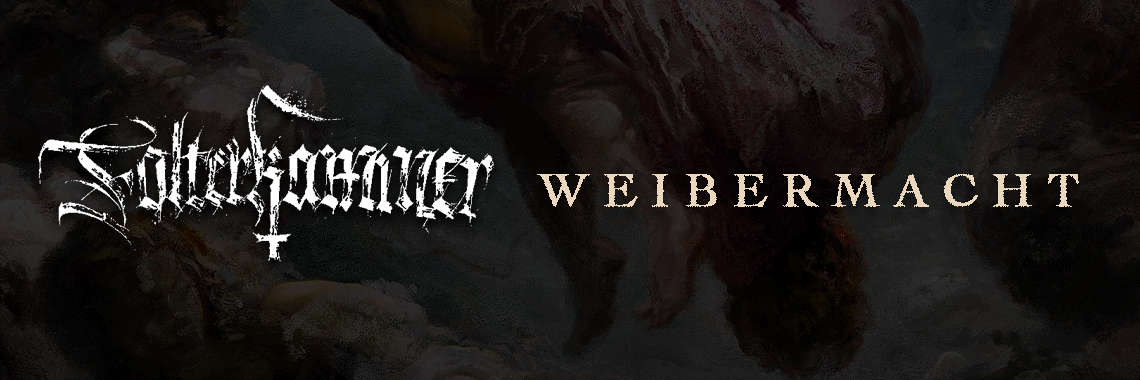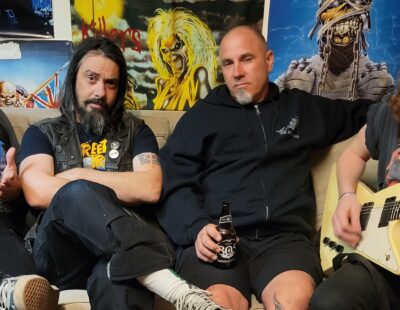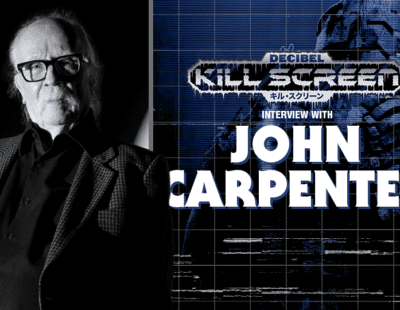
It’s hard to overstate the importance that Metal Blade founder Brian Slagel has played in the history of extreme metal. Started in 1982, Metal Blade become a heavy metal institution and one of the few labels that was able to maintain a balance of good business sense with artistic integrity. Through the label’s history, its helped launch the careers of bands like Slayer, Lamb of God and Cannibal Corpse, bands that have shaped the course of metal as its evolved.
As the leading man behind the operation, Brian certainly has an important story to tell, which is exactly what he’s decided to do with his upcoming book, For the Sake of Heaviness: The History of Metal Blade Records. In a way that emphasis the label’s importance to metal, he weaves the story about the label with commentary on the different trends and events that occurred alongside it. This allows the reader to get Brian’s perspective on things like the New Wave of American Heavy Metal in the early-2000s, and the deals made with major labels in the early-90s at the time of death metal’s commercial zenith.
To get more of his perspective on the book and metal in general, we got to ask Brian some questions:
What made you decide to write the book at this point in Metal Blade’s history? Why not at the 25, or 30 year mark?
I have been asked to write a book a lot over the years. It just felt like a good time on our 35th anniversary to document the journey so far. Also BMG started a new music book division so it seemed like a perfect time.
The music industry as a whole has been through a rough 15 years. How has Metal Blade managed to stay around and thrive, even as as record sales have plummeted and the market has shrunk?
I think we just adapt to whatever is going on business wise. Being around for so long we have seen numerous changes in the business. I learned a long time ago to embrace change and really work with it. So we have been lucky enough to weather all the storms in the business by being adaptable I think. Also sticking to our guns on the type of music we do. We do not try and follow whatever the trend is at the time. Staying true to our metal base has been helpful too I think.
As you describe in the book, Metal Blade partnered with a major label for a time in the early 1990s. What made you decide to walk away from that partnership?
Really it was freedom. When we first signed with Warner they were an independent company, even though they were a major. Once they were bought by Time Inc, it became really corporate. Then they started having restrictions on content and that was too much for me. There was no way I could tell artists what they could or could not say.
At this point in the label’s history, with its legacy well established, what do you look for when deciding whether or not to sign a new band to Metal Blade?
It really is the same formula since day 1. If something hits me, I want to work with it. That really is it. I have been lucky enough that people seem to have the same taste as I do. Certainly it does help tie the band has something going on, but we still sign bands who start from nothing sometimes.
From your vantage point, is there an up-and-coming scene emerging in the underground that you see shaking things up (like death metal in the late 80s, metalcore in the mid-2000s), or has the metal world become too fragmented?
Well there certainly are some new things coming up. Bands like Igorrr that combine some of the DJ culture with metal are interesting. I do think there are a lot of great young bands doing traditional metal as well. Ghost breaking through can only help that.
What advice would you give to the 2017 version of yourself? Someone passionate about heavy metal who wants to get his or her own operation going? Would you say it’s easier or harder than it was in the early 1980s to get something off the ground?
Well in some ways easier since there is distribution even if doing it by yourself. In a lot of other ways harder due to the overall climate and how many labels exist already. That said, I do believe if you really love the music you can make it happen. Key is to be into it for the music and not all the other stuff.
—
For the Sake of Heaviness will be out on August 29 via BMG, you can go here to preorder it.







